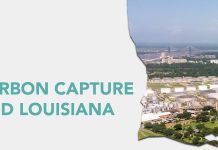Today, Consumer Energy Alliance (CEA) hosted the 2015 Atlantic Energy Forum in Atlanta, Georgia featuring Abigail Ross Hopper, Director of the Bureau of Ocean Energy Management, state officials, and members of the business and environmental community.
The event is the third of a four part series that gathers industry stakeholders from various trade associations, companies, environmental groups, and government agencies to share their perspectives on potential future offshore energy development off the Atlantic coast. The forum focused on responsible offshore wind and oil & gas development.
In addition to Director Hopper, panelists included Georgia State Representative Jason Spencer; Georgia Chamber of Commerce advisor Doug Miell; Georgia Petroleum Council Executive Director Hunter Hopkins; and Southern Environmental Law Center senior attorney Bill Sapp.
As a part of his remarks, Michael Whatley, Executive Vice President of CEA, said that “The benefits to Georgia from developing offshore wind, oil and natural gas resources are broad and vital to the Peach State. From creating jobs and economic growth to generating much needed electricity and government revenues, the potential for responsible offshore energy development presents an important opportunity to help drive Georgia’s economy forward.
BOEM Director Hopper discussed the role of her agency in the development of the 2017-2022 offshore oil and gas leasing program and the importance of receiving input from states, communities, industry, citizens, and others. In doing so, she stated that “it is on our national interest to have domestic energy sources, and oil and gas is clearly one of those,” adding that “We are accustomed to a very specific standard of living here in the United States. We have habits and demands that we require of our energy. We require it to be there all the time, to be very reliable, and to be very affordable. As we think about how we are going to meet that need in the decades to come, all of these technologies — oil and gas, offshore wind, and a whole host of others — will continue to be part of our energy mix.”
Rep. Spencer highlighted the benefits that Atlantic offshore development could mean for local economic development and jobs in areas such as Camden County along Georgia’s southeast coast. “You open up waters off the coast of Georgia for energy exploration, that could really bring power into the state’s economy for decades to come and put a lot of locals back to work,” adding that “Georgia has what it takes to become an energy powerhouse.”
In discussing the Georgia Chamber of Commerce’s support for including the Mid- and South Atlantic in the 2017-2022 oil and gas leasing program, Mr. Miell noted “this is a long overdue initiative to explore this potentially valuable resource that is located right in our own backyard.” He added that “it is critical that we continue to explore options that may identify new sources of supply and build our energy security.”
Mr. Hopkins highlighted the importance of conducting seismic surveys using modern technology to update decades-old estimates of Atlantic oil and gas resources, and the contribution of oil and gas to meeting our energy needs. “Experts say that our world population is about to increase to about 9 billion people in the next 20 to 30 years. As our population continues to grow in that manner, we’re expecting energy consumption to expand by about 50%, which means as more and more people are here on Earth, we’ve got to have more energy for them to be able to enjoy the everyday aspects of life.” Hopkins added, ”Going into the future, fossil fuels are going to be the backbone of our energy consumption.”
Mr. Sapp shared his perspective on the potential implications of Atlantic oil and gas development for local communities. In doing so, he observed that even if oil derricks are over the horizon and out of sight from the coast, “there will be ships and helicopters going to and from those derricks, there will be pipelines built under the ocean and on the land, there will be trucks rumbling through the streets of Savannah carrying materials for the derricks, and there will be warehouses built to house those materials.”
The panel made it clear that the future of potential energy development offshore Georgia will have important implications for the region’s economic well-being and quality of life, and that an updated assessment of the region’s resources will play an important role in the decision-making process.









